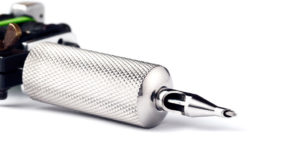The appeal of diet soda is fairly obvious ‒ the amount of calories in diet soft drinks is far smaller than their non-diet counterparts. Unfortunately, research has found that these drinks may actually do more harm than good. In fact, a recent report has concluded that diet sodas could be responsible for weight gain in older adults.
Taking Up (More) Space
This particular study was authored by a team from the University of Texas Health Science Center at San Antonio. Over the span of nearly a decade, the researchers examined both European-American subjects as well as older adults with Mexican ancestry. A total of 749 seniors participated in the report.
At the onset of the study, the authors recorded the height, weight and waist circumference of each participant. This same information was again measured and collected at three additional follow-up points. Of course, the seniors’ soda drinking habits were also documented.
During the timeframe of the study, the waistlines of both diet soda drinkers and non-drinkers alike grew larger. However, heavy soda consumers put on noticeably more weight. Specifically, seniors who consumed these beverages on a daily basis saw their waists expand by 3.16 inches. In comparison, this figure stood at only 0.8 inches for those who totally eschewed these beverages. Not surprisingly, occasional soda drinkers fell right in between these two groups, with their measurements growing by 1.83 inches on average.
Bigger Waist, More Health Problems
Aside from its cosmetic impact, extra abdominal fat can also place the body at risk of suffering serious health-related setbacks. In their report, the authors note that previous research has found an association between larger waistlines and the following conditions:
- Increased inflammation
- Insulin resistance
- Incidence of type 2 diabetes
- Cognitive impairment
- Cardiovascular disease
Furthermore, putting on weight has also been connected to a greater likelihood of premature death. The team published their work in the April 2015 issue of the Journal of the American Geriatrics Society.
Not So Sweet
So how could these “diet” drinks possibly lead to the appearance of unwanted body fat? The culprit may be the various sweeteners used in diet sodas. Such ingredients serve a dual purpose, cutting down the amount of calories in soda while preserving their flavor. There is some evidence, however, that they could interfere with the body’s metabolism.
For example, one group of researchers exposed a group of unborn mice to a sweetener called aspartame, which has been used in the United States for decades. Aside from often being added to diet soda, aspartame can also be found in a number of foods, such as low-fat yogurt, granola bars and chewing gum. This substance inflicted significant damage to a certain area of the mice’s brains, interfering with their ability to regulate appetite. Consequently, these rodents struggled with their weight as they grew, putting on an unusually high amount of abdominal fat.
In light of the report’s findings, lead author Sharon Fowler argues that diet soda lovers should consider healthier alternatives. If you find yourself drawn to the sweet taste diet soda, Fowler suggests replacing it with a combination of sweet fruit and either regular or sparkling water. On the other hand, some people chug these drinks in order to get a quick caffeine fix. Fortunately, both coffee and tea can provide the spark needed to power through an lengthy work day.
 Natural Knowledge 24/7 Educate yourself with nutrition, health and fitness knowledge.
Natural Knowledge 24/7 Educate yourself with nutrition, health and fitness knowledge.






